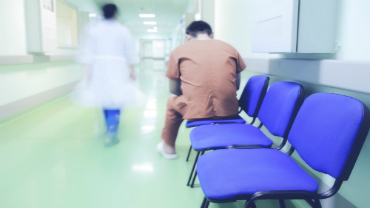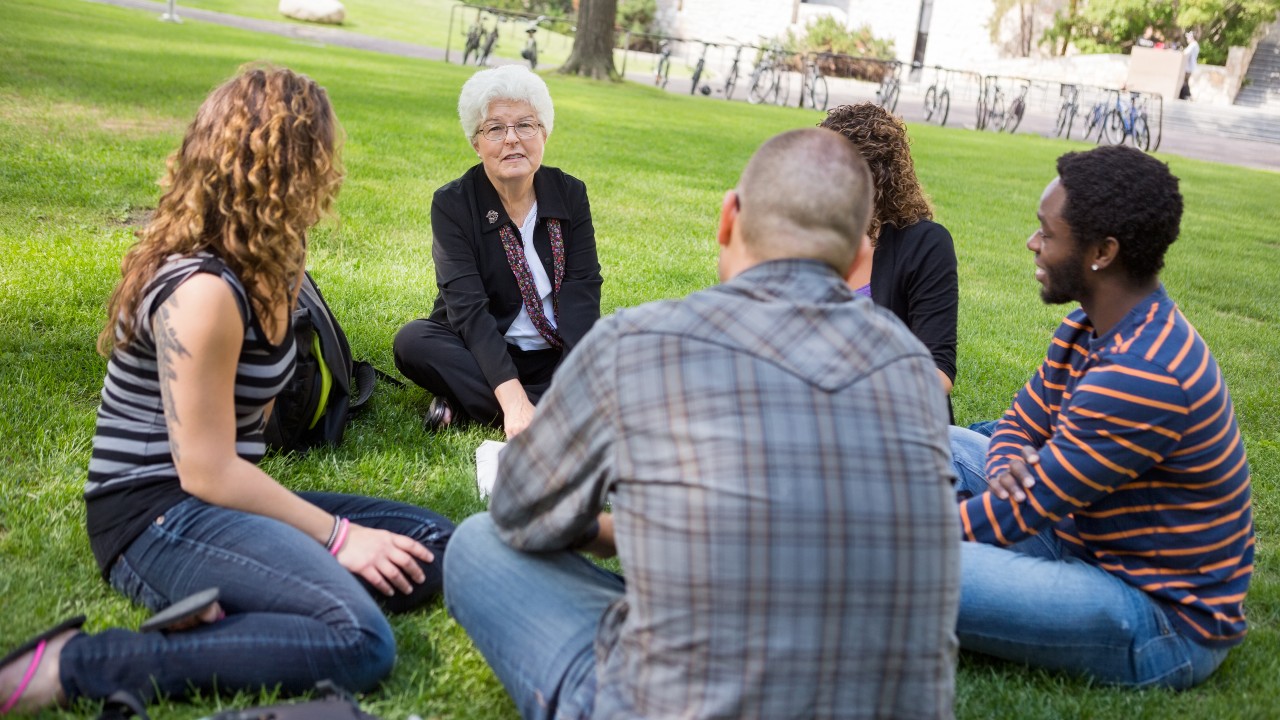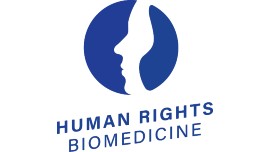Mental health care
 The issue of mental health is expected to be one of the biggest challenges facing healthcare systems in the future. Mental healthcare should be treated no differently to physical healthcare in that a human rights-based approach should be adopted in both. It is vital that the rights and self-determination of all patients, including persons with mental health difficulties, be promoted and that they may actively participate to the greatest possible extent in all decisions regarding their treatment and care. In this context, the development and use of voluntary measures and practices in mental healthcare should be promoted.
The issue of mental health is expected to be one of the biggest challenges facing healthcare systems in the future. Mental healthcare should be treated no differently to physical healthcare in that a human rights-based approach should be adopted in both. It is vital that the rights and self-determination of all patients, including persons with mental health difficulties, be promoted and that they may actively participate to the greatest possible extent in all decisions regarding their treatment and care. In this context, the development and use of voluntary measures and practices in mental healthcare should be promoted.
The Convention on Human Rights and Biomedicine (CETS 164, Oviedo Convention) aimed at protecting the dignity and identity of all human beings and guarantee everyone, without discrimination, respect for their integrity and other rights and fundamental freedoms with regard to the application of biology and medicine.
- Report on the case law of the European Court of Human Rights relevant to mental health | 2023
- Draft Additional Protocol to the Convention on human rights and biomedicine concerning the protection of human rights and dignity of persons with regard to involuntary placement and involuntary treatment within mental healthcare services | 2022
- Compendium: Good Practices to Promote Voluntary Measures in Mental Health Services | 2021
- Statement on the United Nations Convention on the Rights of Persons with Disabilities | 2011
- Recommendation No. Rec(2004)10 of the Committee of Ministers to member states concerning the protection of the human rights and dignity of persons with mental disorder and its Explanatory Memorandum | 2004
- "White Paper" on the protection of the human rights and dignity of people suffering from mental disorder, especially those placed as involuntary patients in a psychiatric establishment | 2000
Why a new Additional Protocol?
In 2004, following a process of reflection conducted within the Council of Europe on the protection of persons with mental disorders, during which a public consultation was carried out on a White Paper, the Committee of Ministers adopted Recommendation(2004)10 concerning the protection of human rights and dignity of persons with mental disorder.
The implementation of the provisions of the Recommendation(2004)10 was then examined within the CDBI which found legal gaps in certain Member States in particular concerning legal provisions governing measures for involuntary placement and treatment of persons with mental disorders.
In view of this observation and of the importance of the subject in relation to the protection of human rights, the decision was taken to elaborate a legally binding instrument giving higher legal rank to a number of fundamental principles and setting out indisputable individual rights, which would serve as a reference in particular for the elaboration or the revision of the national legislations concerned. While many Member States already have adequate legal safeguards protecting persons subject to involuntary measures in place, other States are still lacking such safeguards. The Additional Protocol aims at filling legal gaps in those members States who do not yet have sufficient safeguards in place and in ensuring compliance with the standards set in the caselaw of the ECtHR.
The elaboration of this new Additional Protocol to the Convention has also been supported by the Steering Committee for Human Rights (CDDH) and the European Committee for the Prevention of Torture (CPT).
Objective of such a Protocol
The objective of this new Protocol is to develop, for the first time in a legally binding instrument, the provisions of Article 7 of the Convention on Human Rights and Biomedicine, as well as those of Article 5 § 1 (e) of the European Convention on Human Rights. The Protocol aims at setting out the fundamental guarantees with regard to this very exceptional possibility of interference in the rights to freedom and autonomy of persons.
Basis for the work
The reference texts for the elaboration of the Protocol are the Convention on Human Rights and Biomedicine, and the European Convention on Human Rights as interpreted by the decisions and judgements by the European Court of Human Rights. The work is also carried out in the light of the United Nations Convention on the Rights of Persons with Disabilities (see also the Statement adopted by the CDBI The Steering Committee in Bioethics (CDBI) was replaced by the Committee on Bioethics (DH-BIO), then by the Steering Committee for Human Rights in the Fields of Biomedicine and Health (CDBIO) in 2022), and other relevant legal instruments adopted at the international level.
Furthermore, the work uses as a basis the relevant provisions of Rec(2004)10 of the Committee of Ministers and the standards of the European Committee for the Prevention of Torture (CPT).
* The Steering Committee in Bioethics (CDBI) was replaced by the Committee on Bioethics (DH-BIO), then by the Steering Committee for Human Rights in the Fields of Biomedicine and Health (CDBIO) in 2022
What have been the different stages of the drafting process?
The protocol was elaborated by the intergovernmental Committee on Bioethics (DH-BIO Since 1 January 2022, the Steering Committee for Human Rights in the fields of Biomedicine and Health (CDBIO) has replaced the Committee on Bioethics (DH-BIO).) which has entrusted a drafting group with the task of elaborating a preliminary draft Protocol. For the purposes of the elaboration of this preliminary draft, a hearing of INGOs representing the different sectors concerned (including patients and their families, physicians and other health professionals, associations specialised in the defence of human rights and in the defence of people with mental disorders) was organised on 11 March 2014.
In 2015 (22 June – 15 November), the DH-BIO decided to make available for consultation a draft Protocol as a working document (DH BIO/INF (2015)7). The purpose of this consultation was to elicit comments from individuals and bodies/institutions representing different stakeholders that are concerned. The comments received during the public consultation (DH-BIO/INF (2015)20) would be taken into consideration when finalising the Additional Protocol.
On 22 April 2016 the Parliamentary Assembly (PACE) of the Council of Europe adopted Recommendation 2091 (2016)1 “The case against a Council of Europe legal instrument on involuntary measures in psychiatry” questioning, in particular, the compatibility of the working document with certain provisions of the UN Convention on the Rights of Persons with Disabilities (CRPD) and calling for a direct involvement of disability rights organisations in case of a continuation of the drafting process.
On 9 November 2016 the Committee of Ministers, having considered comments from the Steering Committee for Human Rights (CDDH), the DH-BIO and the Ad-hoc Committee of Experts on the Rights of Persons with Disabilities (CAHDPH), adopted its reply (CM/AS(2016)Rec2091-final), considering, in particular, that the Additional Protocol would “contribute to prevention of abuses and encourage the progressive transition to a more uniform application of voluntary measures in psychiatry by the member States, in accordance with the spirit of the United Nations Convention on the Rights of Persons with Disabilities.” The Committee of Ministers also encouraged the DH-BIO to directly involve disability rights organisations to participate in the work still to be undertaken.
On that basis, the DH-BIO, during its 10th plenary session (Strasbourg, 5 – 8 December 2016) resumed the work on the Additional Protocol in the light of the comments received during the public consultation. The DH-BIO also agreed, further to the already existing participation of the Conference of INGO’s, to also involve directly disability rights organisations, inviting them to participate as observers in the relevant sessions of its meetings.
Following further revision, in particular in the light of the comments received during the public consultation, the DH-BIO, during its 13th plenary session (Strasbourg, 23 – 25 May 2018), decided to send the draft Additional Protocol for opinion to the to the following Council of Europe bodies/Committees, accompanied by its draft Explanatory Report: Steering Committee on Human Rights (CDDH), the European Committee for the Prevention of Torture (CPT), the Parliamentary Assembly, the Commissioner for Human Rights and to the Conference of INGOs. It also decided to send the draft text to the European Committee on Crime Problems (CDPC), with a specific question regarding the applicability to persons subjected to an involuntary measure, to address a mental health condition while serving a prison sentence or in detention, but without any link between the measure and a criminal offence.
Where do we stand?
In November 2021, during its 19th plenary session, the DH-BIO Since 1 January 2022, the Steering Committee for Human Rights in the fields of Biomedicine and Health (CDBIO) has replaced the Committee on Bioethics (DH-BIO). decided, following a thorough drafting process and extensive consultations, to present the draft Additional Protocol to the Committee of Ministers with a view to a decision.
In May 2022, the decision of the Committee of Ministers provided for complementary measures for the protection of autonomy and promotion of human rights in mental health, reflecting a comprehensive approach of the human rights issues in this field. The Committee of Ministers instructed the Steering Committee for Human Rights in the fields of Biomedicine and Health (CDBIO) to complete the following additional deliverables, by 31 December 2024:
- a report on the case law of the European Court of Human Rights relevant to mental health;
- a draft recommendation promoting the use of voluntary measures in mental health care services;











